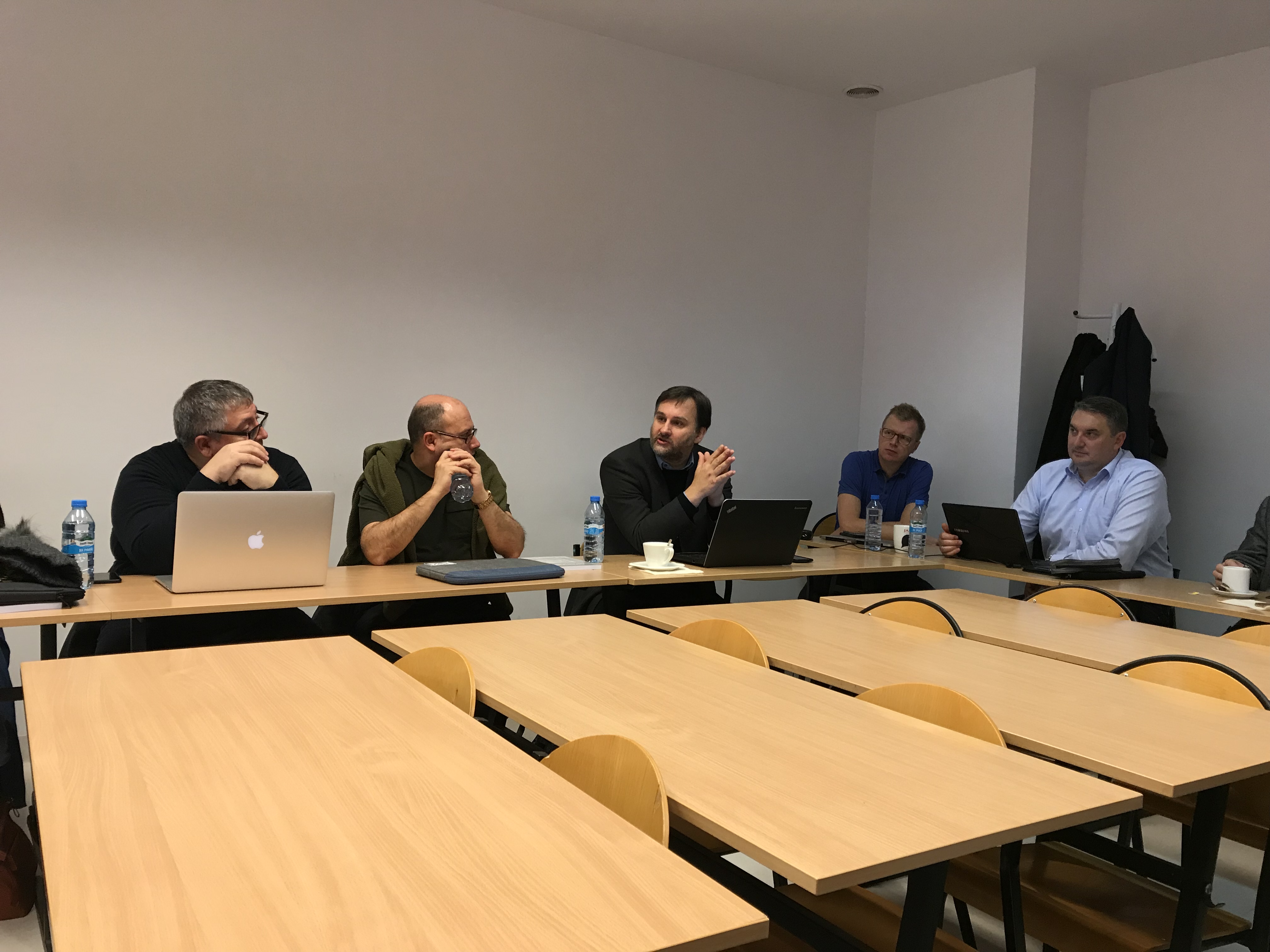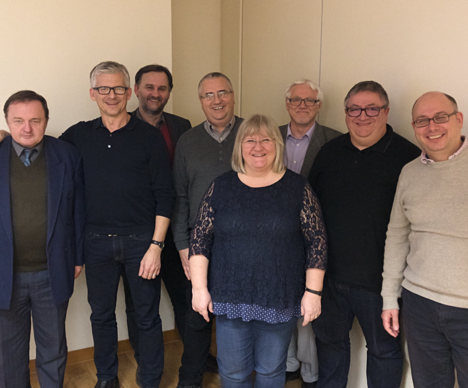
CEEBC editors were helped to focus on contextualisation by their surroundings in the diverse city of Wroclaw, Poland.
The editorial group for the Central Eastern European Bible Commentary (CEEBC) met in Wroclaw, Poland, in the week of November 20-25. It was their third planning meeting, in a series of continuing efforts to prepare the ground for the production of a Bible Commentary that would reflect and respond to the needs of Christian churches in the region sandwiched between Western Europe and former Soviet Union, between the Balkans and the Baltics.
Much work had happened during the previous months since the Editorial Team met in February in Vienna. During the ‘discovery stage’ it was essential to make the project known in the area and identify and contact scholars in each of the 18 countries (Albania, Armenia, Bosnia-Herzegovina, Bulgaria, Croatia, Czech Republic, Estonia, Greece, Hungary, Kosovo, Latvia, Lithuania, Macedonia, Montenegro, Poland, Romania, Serbia, Slovakia, Slovenia) so that it genuinely would become a mutual project of all the evangelical community of CEE. Long lists of potential contributors were compiled: people who love the Bible, who can write, and who have a heart for providing contextualised Bible interpretation to the region.
Gratitude to God
The goal of the November meeting was now to ‘match up’ potential contributors, maintaining a proportional and balanced geographical representation of all countries, and the 66 books of the Bible. It was an eye-opening experience with much gratitude to God for having prepared and provided such rich diversity of trained and dedicated men and women, whereas 25 years ago there was little to no possibilities for theological education in the region. Words of appreciation were spoken also of Langham Partnership for having consciously and continuously invested in scholars from the region of CEE.

The editorial meeting involved hands-on training from Langham Literature Senior Editor Isobel Stevenson.
A significant portion of time during the meetings was also dedicated to discuss issues and topics for the articles which would be included in the commentary as another important vehicle for letting the Bible speak to important contextual aspects with which Christian churches in the region deal and for which answers can be provided through a fresh interpretation of the Bible. At the moment over a hundred topics have been identified and almost all of them already have authors assigned who will expound them in 500, 1000 or 1500 words.
The main goal of the meeting, however, was to engage in writers’/editors’ training provided by Isobel Stevenson of Langham. From her rich experience of working with the previous Langham contextual commentaries, Isobel was able to masterfully guide the discussion on what kind of emphasis, style and approach the Commentary can and should take. By again and again highlighting the fact that this Commentary would be written by indigenous scholars from the region to a pastoral audience in the CEE region, which is a unique and major feature of the Commentary, Isobel conditioned the editors to focus on the specifics of contextualization.
Hands-on training
This was helped not least by the surroundings in which we found ourselves in the city of Wroclaw with all its centuries-old and diverse historical, religious and political influences which, like in many CEE cities, have formed the mind and the psyche of Central Eastern European Christians. The editors’ training was very hands-on in that Isobel used writing samples already submitted by the editors and in practice demonstrated how the editors would now start to work with the many authors in their care when those will submit their commentaries on the assigned Bible books.
All-in-all, it was a great bonding and upbuilding experience for the Editorial Team, and many left the meeting with enthusiasm and with confidence that, in spite of its overwhelming nature, this huge task of writing a relevant contextual commentary for the CEE region is manageable.
By Katharina Penner, Coordinator of the Central Eastern European Bible Commentary.


